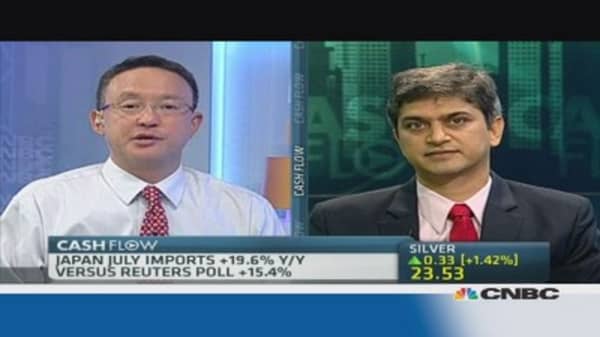"We think the market speculation on easing in housing policies is overplayed. The new administration could have different views on the framework of housing policies, but restoring housing affordability remains a key policy objective in our view. In the near term, the likelihood of further property tightening is very small given the soft economic condition," wrote analysts at J.P. Morgan in a research note.
Sydney flat
Australia's benchmark index was rangebound in cautious trade as investors digested the latest corporate earnings but support from gold miners boosted sentiment.
Kingsgate Consolidated rallied 17 percent and Perseus Mining jumped 13 percent after gold prices hit a fresh two-month high.
The nation's largest steelmaker, BlueScope Steel plummeted 15 percent after posting a full-year net loss of $84 million and warning that uncertainty over domestic demand would lead to further downside for the first half of 2014.
(Watch now: BlueScope Steel on the road to recovery)
Blue-chip stocks Commonwealth Bank of Australia and Telstra fell 3 percent each as they traded ex-dividend.
Kospi slips 0.1%
South Korea's benchmark index was dragged down by a 0.8 percent fall in Samsung Electronics and other key exporter stocks. Market sentiment fell following declines in global markets last week and as investors await further catalysts to lift risk appetite.
Hyundai Motor lost nearly 1 percent on news that its workers voted to strike following failed wage talks with management.
— By CNBC.com's Nyshka Chandran. Follow her on Twitter @NyshkaCNBC




